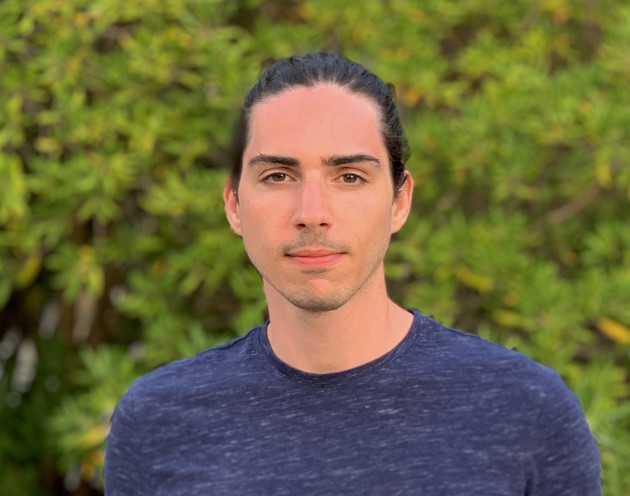To help fight the spread of COVID-19, Jacopo Ranalli (Materials Science and Engineering 2016) founded Covid Guard, a web-based platform aimed at collecting and analysing anonymous health information to provide valuable insights on the pandemic without having to rely on resources with limited availability, such as swabs or serological tests.

We spoke with Jacopo about Covid Guard and his time at Imperial.
Who did you find inspiring at Imperial and why?
I've had the honour to be tutored by Dr Peter Sherrell during my thesis, who I still consider to be one of the most exceptional people I've ever met – professionally and personally. The great thing about Imperial is that you are constantly surrounded by exceptional people. That means you are pushed to learn and grow at an incredible rate, while constantly being inspired by others.
How has what you learnt at Imperial helped you in your career so far?
My time at Imperial changed the way I look at the world. It has been a major turning point in my life, where I built confidence in myself and I realised I could make a difference.
Tell us a bit about the work you’re doing now.
As an entrepreneur, I'm currently working on two projects: Exos, which focuses on producing innovative 3D-printed biomedical devices and orthosis, and Covid Guard, the global COVID-19 screening platform. We collect and analyse anonymous health information to get a real-time overview of the pandemic. Our aim is to statistically determine high-risk areas and identify anomalous patterns days or weeks in advance compared to conventional solutions such as contact-tracing, thus preventing new outbreaks around the world. I spend my days either learning new things or making new things. And I plan to keep doing this for a long time.
What makes your platform different from other COVID tracking pages and apps?
Unlike other similar projects, Covid Guard can already be used globally, and it is built to be easily scalable and customisable. Also, the platform will evolve over time with additional features and services, increasing its effectiveness. These include a safety protocol for public places (schools, universities, workplaces, etc.) and a telemedicine service. While our main focus remains to help in fighting the pandemic, we also have a long-term plan for when the COVID-19 pandemic is over.
What has been the most challenging part of your project so far?
Conceiving the various aspects of the platform and building it quickly, while keeping up to date with the constantly changing global situation. It was also quite hard to make our platform known to the public and institutions.
Where do you see opportunities for other alumni to make a difference in these challenging times?
The pandemic exposed many vulnerabilities in our society and currently used technologies. Many things are bound to change from now on, but at the same time an unprecedented wave of new opportunities will rise. Imperial alumni have what it takes to lead this change, having a positive impact on the world.
What makes you proud to be an Imperial alumnus?
Belonging to a community of exceptional people that are shaping the world every day.
What would be your advice for current students?
Get to know yourself, choose what you want to become/achieve and work hard to get there. Things can get hard, but believe in yourself and don’t give up. You’ll be fine. Remember that you can change the world, but only if you dare to.
Do you have a favourite quote or saying?
When something is important enough, you do it even if the odds are not in your favor.
If you have never failed, are you really trying hard enough?